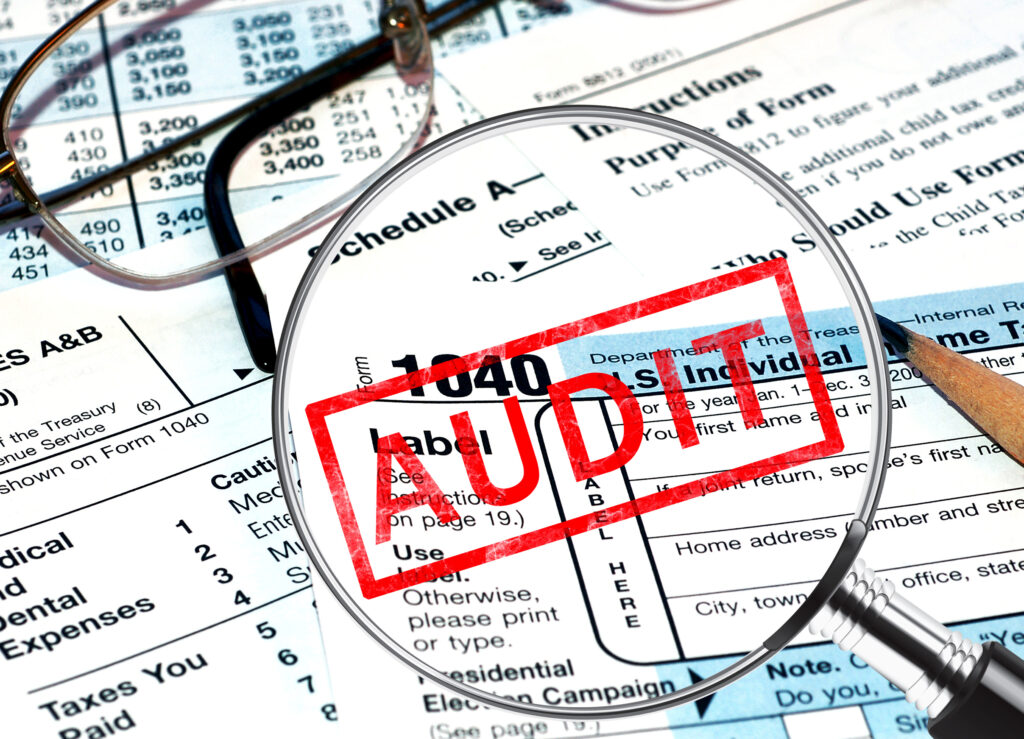7 Actions That Could Get You Audited By the IRS

Contrary to popular belief, the Internal Revenue Service (IRS) seldom audits taxpayers. In fact, only about 1 percent of all tax returns processed are subject to an IRS audit. However, it is interesting to note that historically wealthier individuals and the most successful of businesses are more likely to get audited, compared to low to moderate incomes. Generally speaking, audits typically occur an average of two years after a person files, as the IRS must process the tax filings of millions of individuals as well as corporations. So, where do you or your organization fall into the mix? Is there any reason for you to worry about an IRS audit? For starters, it seems clear that there are a very minimal number of “random audits” being performed, and therefore the massive majority of IRS audits are conducted based upon certain red flags from the taxpayer.
Being aware of these potential warning signals for the IRS could be the difference between getting audited or not. As a result, it is prudent to be educated on the variety of factors that may increase the likelihood of being audited. Take a look at the following actions that could get you or your company audited by the IRS:
- If you report a net loss in two or more years within a five-year period of business. According to the IRS, a business should be able to have at least three years of profits in five years.
- Claiming that your vehicle was used 100 percent for business purposes. Since it is highly unlikely that your vehicle would be used solely for business purposes, this is an easy way to raise a red flag. Keeping a tight record of your business mileage is critical to keeping the IRS at bay.
- Not reporting all taxable income. Since the IRS sees copies of all W-2s and 1099s, it is essential that you report earned income in its entirety on the tax return.
- A schedule C filing can raise eyebrows at the IRS. When small business owners file a schedule C, they must make sure to have all of the documentation to justify doing so.
- Large cash transactions may trigger an IRS audit. When a cash transaction exceeds $100,000, an audit could follow. As such, keep a meticulous record for any and all of your large cash transactions.
- Sizable deductions for entertainment, travel, and food. Any type of large deductions in those three categories can raise suspicions, so be sure to keep a detailed record of things like business purpose, attendees, and even specific meeting topics.
- Rounding or averaging numbers in your tax returns. Regardless of the size of the line item, very single entry in your tax return should be exact, as rounding of any kind may garner the attention of the IRS.
While this is certainly not a comprehensive review of audit red flags, it is important to highlight some of the more common warning signs. Sure, these are useful things to keep in mind, but it is just as critical to claim every single deduction that you or your business is entitled to. At Ellrich, Neal, Smith & Stohlman, P.A., our tax services include the preparation of federal and state income tax returns for all business, not-for-profit organizations, and personal entities including individuals, estates, trusts, partnerships and corporations as well as business and individual tax planning and consulting. Our tax planning service goes far beyond filing a tax return. We assist new businesses with basic ownership options and tax consequences and guide growing businesses through year-end planning and projections. We offer a broad range of consulting services that include evaluating material transactions, mergers and acquisitions, international taxation strategies, and estate and trust planning.
